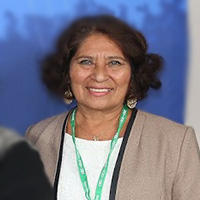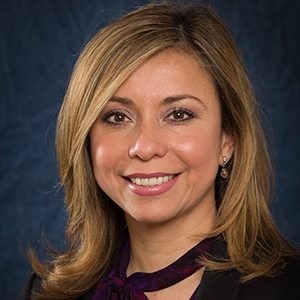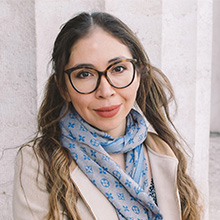Online Knowledge Dialogue: “Applying Indigenous Knowledge in Water Management: Models of Best Practices”
Online
November 22, 2022
11:00 Eastern Time (US and Canada)
Public
Water is an essential resource for life, health, the eradication of poverty and hunger, combating desertification and biodiversity loss, and to promote a socially, economically, and environmentally sustainable, resilient, equitable, peaceful, and inclusive future for all.
Water conservation and management is not an easy task. Daily, our freshwater sources face contamination, over-exploitation, and mismanagement, among many other problems due to human activities. Indigenous peoples´ traditional cultures and knowledge systems are globally recognized as holding critical information related to achieving sustainable practices in water management. Indigenous communities have successfully used such knowledge for the benefit of their territories and for society generally. Therefore, appreciation of Indigenous peoples´ perspectives is essential to advancing inclusive and diverse sustainable environmental management approaches to meeting global goals, and to institutionalizing the inclusion of traditional ecological knowledge (TEK) in science and policy spheres.
In this regard, the CEC Knowledge Dialogue “Application of Indigenous Knowledge in Water Management: Best Practice Models” will present selected cases from North America to show the use, application, and importance of Indigenous knowledge (tools, approaches, and methods) in the context of freshwater management. The Knowledge Dialogue will serve as a space for exchanging and sharing experiences and to influence policymaking.
Agenda
22 November 2022
(Eastern Time)
Spiritual Opening Ceremony

Member of the Traditional Ecological Knowledge Expert Group (TEKEG).
Opening and Welcoming Remarks

TEKEG Facilitator
CEC Project Overview: Indigenous Approaches to Freshwater Management in North America

Head of Advisory Groups and Private Sector Engagement
Overview of the Agenda and Instructions for Participants

Traditional Ecological Knowledge (TEK) and Indigenous Affairs Officer
Presentations of Selected Case Studies


Member of Simpcw First Nations, and a guest learning on Tk'emlúps te Secwépemc Qwelmínte Secwépemc
Title of presentation: Séwllkwe-Wai Exchange: An Intercultural exchange between Kua Aina Ulu Auamo (Hawai’i) and Qwelmínte Secwépemc

Executive Director, Keepers of the Water Tthebatthı Dë né sułıné – Smith's Landing First Nation, Treaty 11, Northwest Territories
Title of presentation: Dene knowledge on Protecting Water

Conservation director, Canadian Parks and Wilderness Society – Quebec section
Title of presentation: Recognition of the Magpie River as a legal person in Canada.


Head of Department B, National Water Commission
San Juan Achiutla, Municipality of Tlaxiaco, Oaxaca
Title of the communication: Muchita nisa: Traditional water care practices and knowledge in the village of San Juan Achiutla, Tlaxiaco, Oaxaca

Coordinator, United Villages for Water Management and Protection (Copuda)
El Porvenir, Municipality of San José del Progreso, Oaxaca
Title of the communication: Sowing water, sowing autonomy


Environmental Manager, Prairie Band, Potawatomi Nation in Kansas
Prairie Band, Potawatomi Nation
Interactive Dialogue between Participants and Q&A from Online Participants

Traditional Ecological Knowledge (TEK) and Indigenous Affairs Officer
Closing Remarks

TEKEG Facilitator